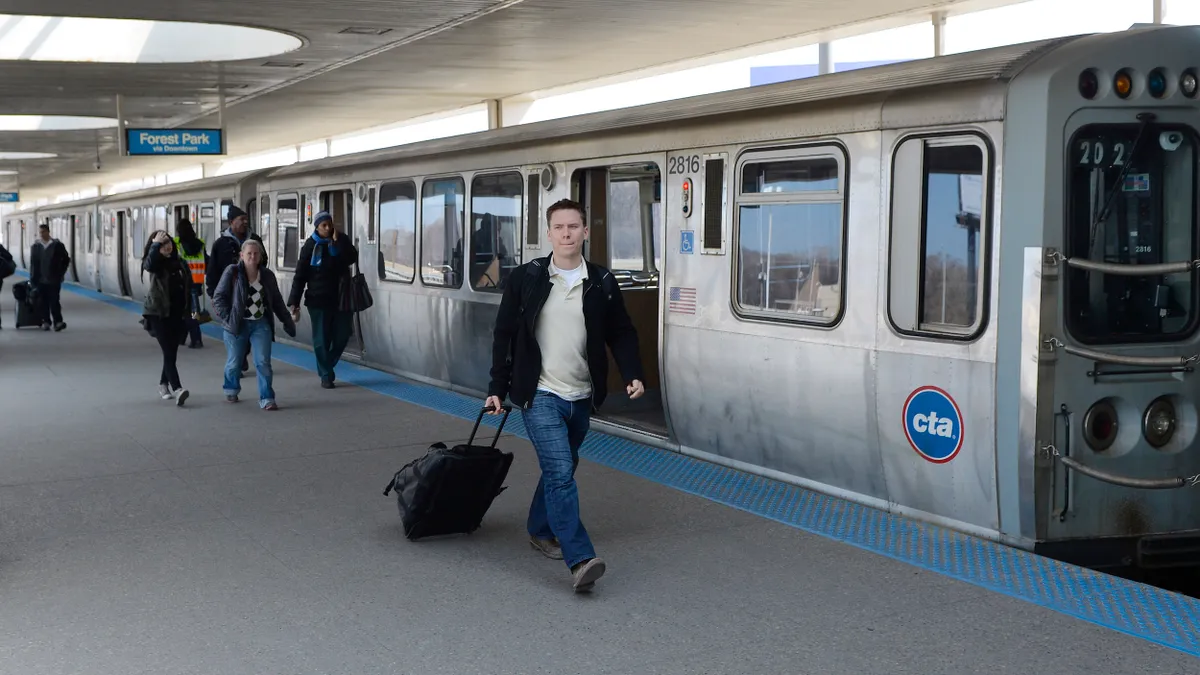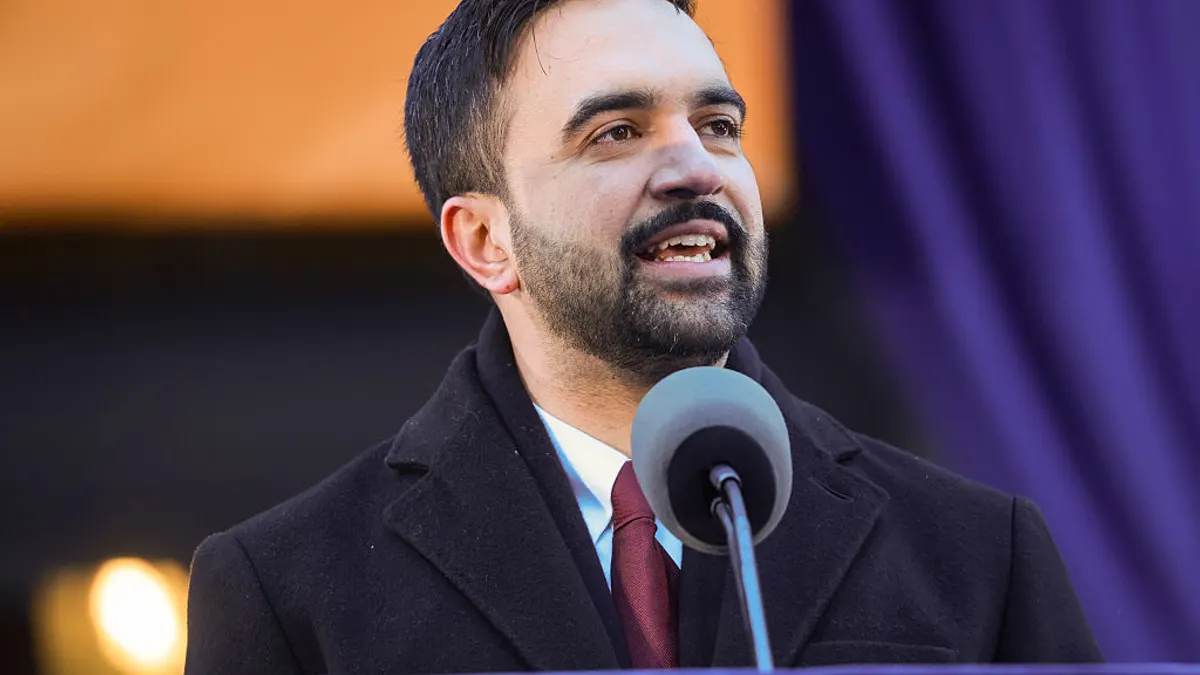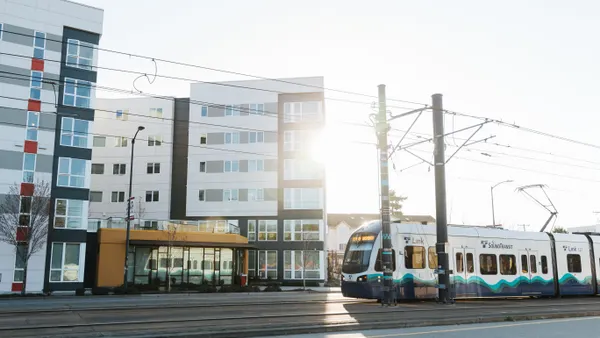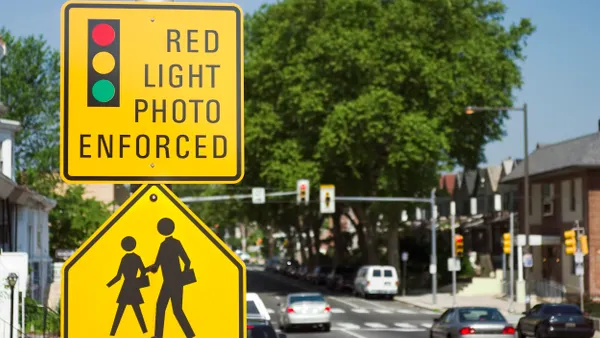Dive Brief:
- The Illinois state legislature passed a bill Friday to restructure the Chicago region’s transportation authority, provide $1.5 billion in funding for public transportation agencies and support transit-oriented development.
- The legislation addresses potential service cuts and fare hikes that were to go into effect in 2026, though details remain to be ironed out.
- The bill passed largely along party lines, with all but one Republican member objecting to a provision that redirects motor fuel sales tax revenue to public transit. Illinois Gov. JB Pritzker, a Democrat, is expected to sign the legislation.
Dive Insight:
The state’s Regional Transportation Authority, which oversees the Chicago Transit Authority, Metra commuter railroad and Pace suburban bus service, projected a $230 million 2026 budget deficit in October. The RTA proposed fare hikes for Metra and CTA to cover the fiscal deficit.
“This bill provides the stable funding and governance reforms needed to protect transit service for the millions who ride CTA, Metra, and Pace—and the thousands of frontline workers who keep our region moving,” RTA said in a statement. “We are continuing to review the bill and will share more in the days ahead, including how this impacts the 2026 budget process.”
The RTA supported governance reforms enacted in the bill, which will transition the authority to the newly created Northern Illinois Transit Authority. The move will help the agency “coordinate service, plan strategically, and better support riders,” the RTA said in a statement.
The legislation increases a purchase tax in the RTA’s six-county region by 0.25 percentage points. It also raises tolls on northern Illinois toll roads by 45 cents, which would go back to the Illinois State Toll Highway Authority, not to public transit.
Business leaders, labor unions and environmental advocates supported the legislation. “By dedicating transit-based revenues for transit needs, we now have a sustainable solution that will avoid significant cuts and allow for continued investments in a dynamic transit system,” Chicagoland Chamber of Commerce President and CEO Jack Lavin, said in a statement.
The Labor Alliance for Public Transportation and the International Union of Operating Engineers Local 150 added their support. “Working people led the charge to demand a sustainable future for public transportation,” the labor alliance said in a statement. “This success is the result of tireless advocacy and compromise among union transit workers, riders and diverse stakeholders - one built on a shared commitment to Illinois' future.”
“Illinois is showing the country how policymakers can come together to provide clean and affordable transportation choices so that traffic congestion and dirty air are no longer inevitable,” Samantha Henningson, senior transportation advocate at the Natural Resources Defense Council, said in a statement.
The bill also requires the creation of a law enforcement task force to address crime on trains and buses in the Chicago area. “Resources will be directed to increase public safety throughout the transit system, a key goal of the business community and residents,” Lavin said.











